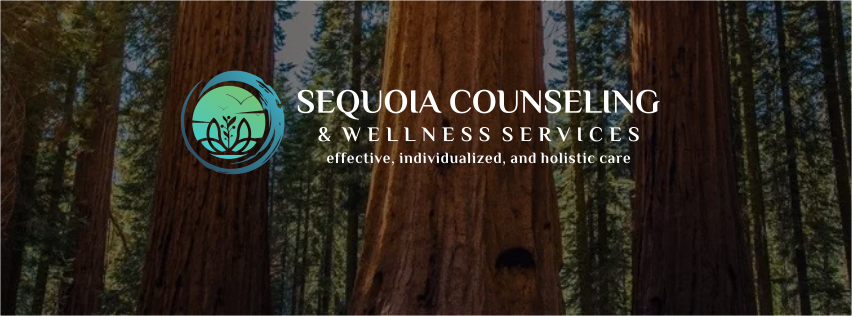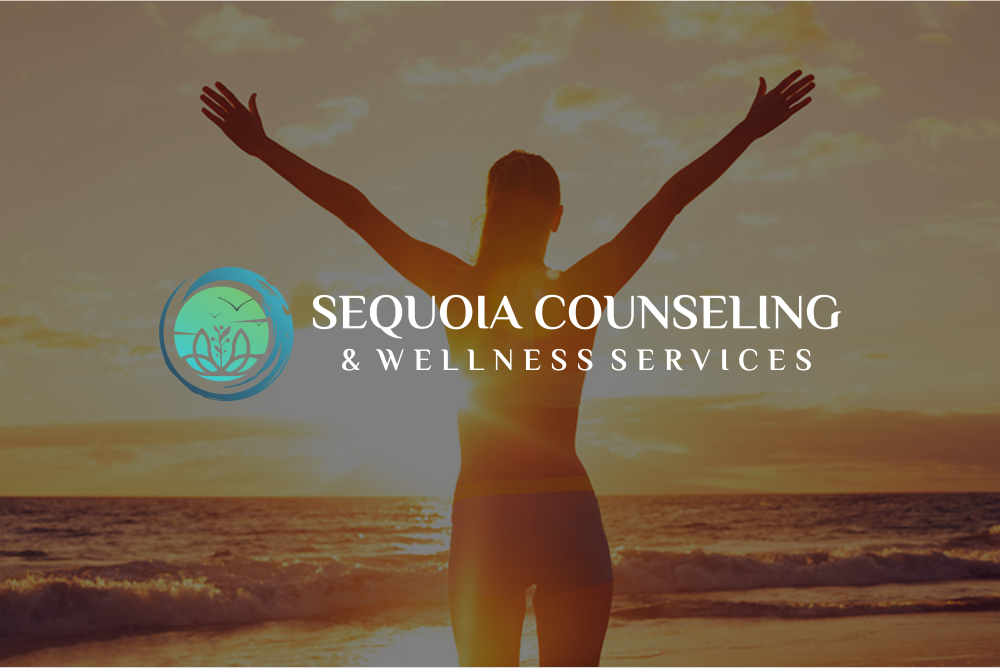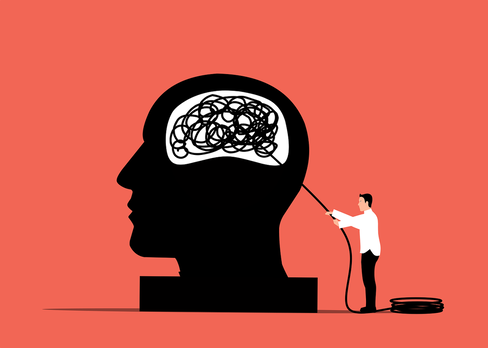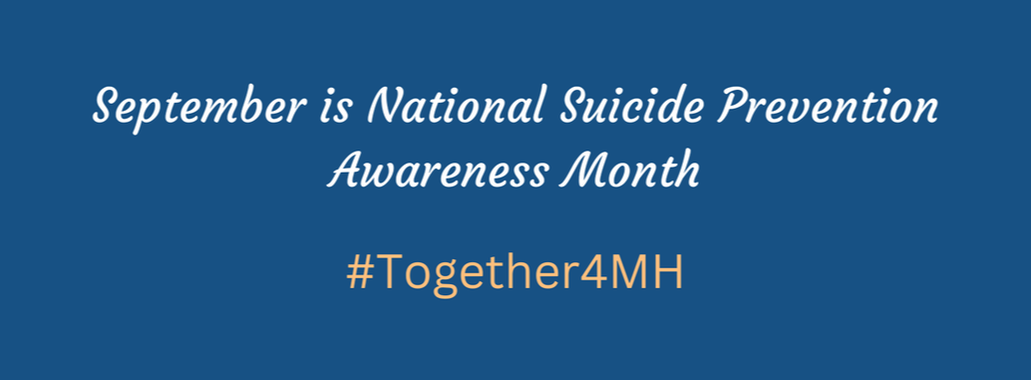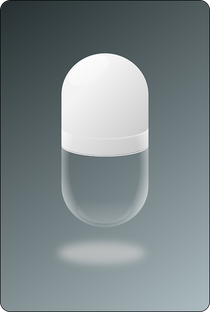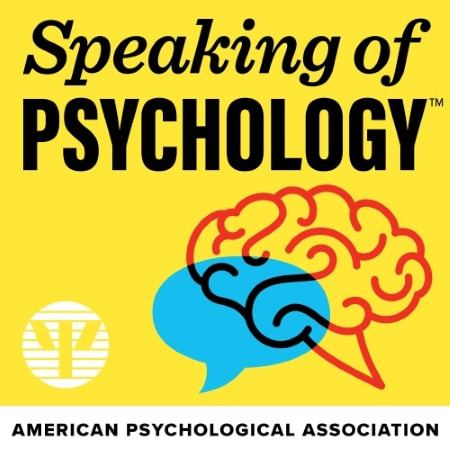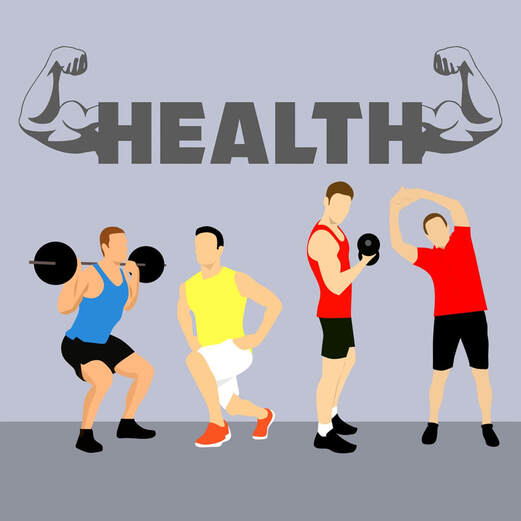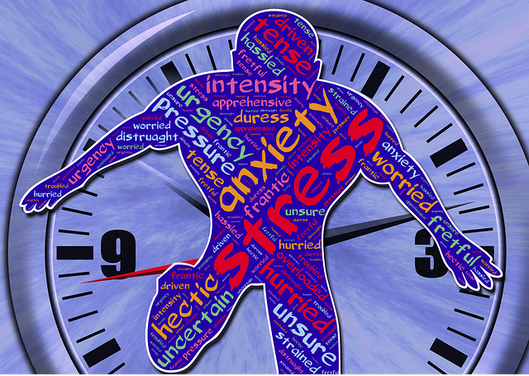|
Have you been feeling more out of control lately- perhaps you are acting or feeling in ways that are not normal for you. You don’t like how it feels and you don’t like the effect these changes are having upon your life and your relationships.
Perhaps you aren’t sure what is “normal”, especially if you don’t usually talk about feelings with others.
Some signs and symptoms of depression are: feeling down, feeling irritable/angry, changes in sleep or appetite, less motivation or enjoyment, thinking everything is your fault, and isolating from others Some signs and symptoms of anxiety are: worrying too much about too many things, difficulties relaxing or often feeling on edge, less concentration, feeling overwhelmed Do your symptoms bother you and create a lot of stress? Do they impacting your health or your daily functioning? It can be hard to admit that you are changing and that these changes aren’t going away. Depending on your circumstances, your coping strategies may not work like they used to. If this is you, I want to say..
You didn’t fail You aren’t weak You aren’t too much It’s not your fault And furthermore.. Asking for help is not a bad thing; therapy is not something to be scared of The longer it takes to start therapy, the longer it could take to get better It’s harder to help others when you aren’t well yourself Getting therapy is not a sign that you are unhealthy or “very bad” Oftentimes, the healthiest people are the ones who recognize when they are not well and ask for help.
How can you be a more active participant in your medical treatment and care?
We ask questions everywhere we go because we want to be informed of our options and make the best decisions for ourselves. For example:
Do you know what questions to ask when planning for a medical procedure or treatment? What about when starting a new medication? Familiarize yourself with this list of 10 questions and use them the next time you or a family member have a visit with the doctor.
1. What is the test for? 2. When will I get the results? 3. How do you spell the name of that drug? 4. Are there any side effects? 5. Will this medicine interact with medicines that I'm already taking? 6. Why do I need this treatment? 7. Are there any alternatives? 8. What are the possible complications? 9. Which hospital is best for my needs? 10. How many times have you done this procedure? (https://www.ahrq.gov/questions/10questions.html) Think about your healthcare provider and specialists as your health care team. Be empowered to take an active role in your healthcare by asking questions, inviting and facilitating communication between team providers and nurses, and advocating for yourself. If you are in need of a health psychologist for your health management team, contact me to see how I can assist!
Be well !
What are the signs that you are experiencing a heightened level of stress/distress? Are there an overwhelming number of thoughts running through your mind? Perhaps you feel chest pressure or muscle tension. If you often experience high levels of emotional distress, you might have difficulty identifying the origin or components of your distress- all you know is you want it to stop.
As a psychologist I don’t expect clients to always know the triggers of their stress or pain, especially if they have never been good about regulating stress levels or unaware of their emotional or physical experience. I recently learned about this amazing “Distress Thermometer” self-report questionnaire (I recommend printing it out) that can be a very helpful tool to identify what you are experiencing and give you the words to talk about it with others. The tool can be adapted in different ways to track how feel from one day to the next. The subjective experience of your concerns can also help with decisions about seeking therapy.
Lastly, did you know that distress can also be associated with specific health conditions and their management? So for example, you aren't necessarily depressed just because you feel badly about yourself and lack motivation to care for your health condition. Many times people with health conditions struggle to cope (and would benefit from professional counseling) but don't have depression or anxiety. Here are some specific self-report questionnaires for health conditions to help you decide whether or not you want to seek therapy to improve your coping and daily functioning.
Be well !
In this video, I explain the importance of understanding the relationship between the brain and the digestive system (gut) when it comes to GI disorders and functioning. It is essential to understand the role of the brain and gut upon psychological and digestive concerns. Treatments such as cognitive behavioral therapy and mindfulness are shown to be effective. In addition to this video, please review this blog post which discusses several myths regarding the gut-brain connection (click here!). I plan to make more blogs/vlogs in the future that address strategies to treat and optimize psychological and gastrointestinal health. Until then, you can reach me through my contact page if you have any questions or are interested in starting therapy. <3 Be well! In this video, I share some practical tips to help those living with pain conditions, especially chronic pain. This is a good introductory overview for pain management strategies that can be used in addition to or in place of prescription medication. <3 Be well !
Suicide prevention and awareness is an important topic that carries discomfort and stigma. As of 2020, suicide was the 12th leading cause of death in the United States and it is becoming more widespread. These statistics do not include people who had suicidal thoughts, identified a plan of action, or attempted suicide. Suicide is often preventable. In this post, there will be information on suicide myths, tips on how to cope with suicidal thoughts, and how to respond when someone you care about is experiencing suicidal thoughts. As they say in sports, the best defense is a good offense. While it is uncomfortable at times to talk about suicidal thoughts, knowing how to prevent, respond, and avoid a recurrence of suicidal thoughts/behaviors is so important. If you are experiencing thoughts of hopelessness and/or suicide, ask for help via crisis hotline, health care provider, or hospital. Having suicidal thoughts does not result in automatic psychiatric hospitalization; all professional services are intended to offer help, keep you safe, and avoid a disastrous and potentially permanent outcome. The National Institute of Health reports that approximately 21 million adults or 8.4% of all adults in the U.S. had depression in 2020. Of these 21 million adults, an estimated 66% received treatment. For decades, the common theory for the cause of major depression was low serotonin levels or a ‘chemical imbalance.’ A recent study from the University College London (Moncrieff and colleagues, July 2022) reviewed existing research literature and concluded that depression is not caused by low serotonin levels. While these conclusions are based upon the prior research findings of others, this article has become a hot discussion topic on social media and news. The conclusion that serotonin does not cause major depression is relevant because it suggests that SSRI/SNRI antidepressant medications such as Prozac (Fluoxetine), Zoloft (Sertraline), Celexa (Citalopram), Cymbalta (Duloxetine), and Effexor (venlafaxine) may not be the ideal treatment for major depression and depression symptoms. We need clarity on these confusing findings! In this post I will review the University College London research findings, depression treatment best practices, and my clinical practice findings on these topics. I hoped to write a blog on perfectionism and wanted it to be perfect.. er.. awesome, helpful, and useful. While revising this blog post, I did a simple google search on "thoughts of a perfectionist" and found over 44,000 articles in the search, related to this topic. When I narrowed down the search to the last 3 years, there were still at least 10 pages of search results. This led me to wonder, why is it that perfectionism still continues? Why are there individuals with anxiety and/or low self-esteem who aren't looking to change these thought patterns? Research does show a relationship where there is a greater likelihood for perfectionists to experience anxiety, test anxiety, eating disorders, depression symptoms, low self-esteem, sleep difficulties, and suicidal thoughts. However I believe that perfectionists don't exactly see these patterns as a "problem" or something that they can really fix even if they wanted to. They may not be aware that it is an issue. So how might a perfectionist proceed? How can friends/family be supportive? Hi Sequoia Counseling Friends, This blog post is part 2 of a series addressing self-care approaches to managing job burnout. If you did not see the first video or blog post on job burnout, I recommend watching/reading them first. This blog covers additional coping strategies from Acceptance and Commitment Therapy (also known by the acronym “ACT”). ACT is considered a third-wave treatment approach (CBT is part of the second-wave) that includes mindfulness, cognitive behavioral therapy, and an emphasis on behaving in ways that are consistent with one's values and beliefs. If you are new to ACT (or even if you aren't), these strategies will provide a fresh look and new approach to stress and burnout management. Hi Sequoia Counseling friends, today's blog post is about job burnout. I've noticed that social changes are impacting how we work and how we view work- these changes can be stressful and increase chances of job burnout. In this post, I start with a clear definition of "job burnout." From there I will talk about the effects, why it occurs and what maintains it, and some possible solutions. Are you ready? Let's go... ! "What Is the Best Approach For Someone Living With Multiple Health and Mental Health Conditions?" Often times serious and ongoing health and mental health conditions occur together and impact one another, as in the case of type 2 diabetes and major depression. What is the best approach when multiple complex diagnoses are present? A recent online article shared recommendations presented at the Obesity Medical Association Spring Conference by Nowreen Haq, MD. Do you ever find yourself behaving in ways that deviate from social norms, traditions/values, or personal expectations? Have you ever felt disappointed in the outcome of a task or project and come down hard on yourself in spite of the time, effort, or money you put into it? One of the negative thoughts that we might have in these situations, are "shoulds"; as in, "I should have known", "I should have been more careful", etc. When these types of thoughts result in negative feelings and become habitual responses they can be trouble. Excessive and habitual shoulding on yourself is associated with the weakening of your confidence, indecisiveness, worry, and feelings of guilt, self-doubt, and fearfulness. If you are sensitive to feeling shame or grew up in an environment where shame was used to control behaviors, you might have a tendency to evaluate yourself and your performance using "should statements".
“Should statements” (also referred to as "must statements") refer to private thoughts we have to ourselves about past or present behaviors that we didn’t do, but should or ought to have. This is not the same as using “shoulds” in planning (eg “I have a free hour tomorrow; what should I do?” or, “I need help; who should I call?”). Psychologist Judith Beck described these thoughts as “precise, fixed ideas of how you or others should behave and you overestimate how bad it is that these expectations are not met.” Her example of an unhealthy use is: “It’s terrible that I made a mistake. I should always do my best.” We learn some unhealthy thought patterns from observing others. Thought patterns can also develop as part of low self-esteem, or depression/anxiety symptoms that then become unhealthy habitual ways of thinking.
Next time you catch yourself using “should” statements, consider why you didn’t choose to behave/perform in an expected or desired way. For example, perhaps there were too many things going on at the time or other circumstances affected the outcomes beyond your control. Choose to exercise self-compassion and acceptance. Remember that errors happen, and more than likely the outcome that happened isn't literally "the end of the world." We all have room for learning, growth, and grace towards ourselves and one another. Thank you for reading along! <3 Be well! I look forward to my future posts this summer on perfectionism and high standards, which is related to should statements.
The Purpose of PainPain is an experience that can describe how we feel physically and emotionally. From a physical standpoint, we think of pain as something bad that we want to avoid. If the pain is really bad, we might think of it as “suffering.” These ways of thinking about physical pain apply to emotional and psychological pain.
Pain is a needed experience because it is the mind and body’s natural way of letting us know that something is not right or that we are being harmed. In other words, the purpose of having an alarm such as pain informs us that an action needs to be taken. Pain can also be a sign that further investigation is needed (and action may not be necessary or appropriate). Ignoring these safety “alarms” can lead to future problems with recognizing when something is not right physically or emotionally. Unhealthy Coping Examples
Healthy Coping Ideas
If you are having thoughts about harming yourself or others, please do not wait to get help. Talk to your doctor, a therapist, or a crisis hotline.
If you are interested in online counseling services with Dr. Soo Hoo, you can send an email or fill out the contact form. Thank you! <3 Be well! This video post explains how unproductive worrying and unhealthy ways of managing stress can contribute to health problems. I provide examples of how these behaviors can affect women's health, (men's health is also impacted). I finish by sharing different ways to respond when worried and anxious. <3 Be well ! A common concern I hear from patients is how to manage feelings of loneliness. These feelings result from seasonal changes and a desire to do activities again. People want to have fun things to look forward to! People want to have good friends to enjoy life with! Paul MacLean said, “A sense of separation is a condition that makes being a mammal so painful” to reflect our need for social connection. If you are someone who is in need of friends, is interested in making or deepening social ties, keep reading! This post will explore barriers to finding and making friends and review professional advice on how to make forward progress and connect with others. From the moment I became an independent adult, it seemed like time was flying by- with each year passing faster than the last. I began to reflect on how to make time slow down for the enjoyable moments and how to lengthen and create times for relaxation and renewal. On this note, researchers are studying how people spend their free time and how it affects their sense of well being and enjoyment in life. How can we take care of the things that matter and still have time to enjoy our lives? In their research, Sharif, Mogilner, and Hershfield (2021) discuss how many people experience this idea of “time poverty” and a sense of unhappiness due to stress and having too many things to do and not enough time. They wanted to study if having a significant amount of time to do whatever we wished would actually result in greater happiness and wellbeing. Are You Thinking About Stopping Your Antidepressant Use? Approximately 13% of Americans 18 years and older reported taking antidepressant medication in the past month (NCHS Data Brief, August 2017). Antidepressants (commonly referred to as SSRIs or SNRIs) are typically prescribed for the management and treatment of depression and anxiety disorders. Depending on the type of healthcare professional and their experience, the first line of treatment for depression and anxiety is psychotherapy, medication, or some combination. Approximately 40% or more of persons using antidepressants in one study discontinued their antidepressant medication too soon (Olfson et al, 2006). A successful treatment response includes improvements in duration, frequency, and intensity of symptoms; relationship satisfaction; initiation and completion of important daily activities; and improved physical health such as diabetes control, sleep quality, and pain perception. As depression and/or anxiety symptoms improve, patients start thinking about weaning off antidepressant medication. According to the most recent APA Stress in America Study, 66% of people reported sleeping more or less than they wanted to since the pandemic started. Previously, I've written blogs (click here or here) about causes and remedies for insomnia. In this interview with psychologist Dr. Jennifer Martin (conducted by the American Psychological Association), additional insights and tips relevant to "coronasomnia" are discussed. This super informative interview is full of great information for those that are struggling with sleep. If you prefer to read, a transcription of the interview is also posted. Eating is a common coping strategy in response to negative emotions such as sadness and stress. Many times we choose foods that are high in sugars, salts, or saturated fats. Emotional eating can become a habit whenever life gets tough. In the chapter, “Eat, Drink, and Be Sedentary,” Epel and others (2018) ask the question, “Does eating behavior have consistent effects on changing emotional experience?” In this blog post, I will review their findings and offer comments and recommendations. Sleep deprivation over time can result in physical and psychological conditions. In “Eat, Drink, and Be Sedentary”, the authors share what they learned after reviewing research on how these behaviors influence our moods and coping. This post will review their findings on the effects of sleeplessness upon mood. I will discuss the short-term risks and consequences and explore at what point sleep problems become “real problems.” We are familiar with the idea that emotions (such as stress) can influence our behaviors, such as leading to an increase in eating junk food or binge watching shows on Netflix. But how do health-related behaviors such as physical activity, eating, and sleep impact our emotions? In “Eat, Drink, and Be Sedentary”, the authors share what they learned after reviewing research on how these behaviors influence our moods and coping. I hope this blog post will share new information that will help readers be more self-aware and encourage healthy habits. Stress Management and Self-Care for Health Care Providers, Essential Workers, and Caregivers1/22/2021
Healthcare providers and staff, essential workers, and caregivers have demanding jobs and at times high stress levels. These elevated stress levels affect our ability to engage in healthy coping behaviors. Not only do we lose energy and motivation for healthy behaviors, we tend to engage more in unhealthy behaviors. This of course can be problematic over time. What are some manageable ways to develop healthier lifestyle practices? By prioritizing our wellness (our physical, psychological, and spiritual health) - we can prevent breakdowns in our physical/psychological health and functioning and increase our effectiveness in daily our roles. Life during 2020 has been very challenging. We were forced to make changes to our routines that we weren’t expecting, we experienced significant losses, and we continue to live with unnatural, difficult, and scary circumstances that are in many ways beyond our control and without a clear end in sight. Researchers are studying how people around the world are thriving and preventing problems with depression, anxiety, stress, alcohol abuse, etc. that are becoming more common due to the pandemic, its effects, and coronavirus or health-related worries. How do people successfully cope? Life during and after the COVID-19 pandemic created so many different emotional reactions, including disappointment, fear/anxiety, and frustration. Under normal circumstances, when we strive for growth, change or achievement, we may encounter challenge and adversity. With the COVID-19 pandemic, maintaining normalcy and stability and just surviving was difficult. Whatever your current circumstance, here are some ways to cope with the lasting effects of the pandemic. As a therapist that takes a lifestyle medicine approach, I believe in helping you be as healthy as you can be. Diabetes is a common chronic illness which can be prevented. A UCLA study (2016) found that nearly 50% of California adults, including 1 out of every 3 young adults have either prediabetes or undiagnosed diabetes. Another 9% of adults have a diabetes diagnosis. In this post, I share general tips and resources on how to protect yourself and loved ones from chronic illness and how to develop a healthy workplace culture. |
||||||||||||||||
Hours Mon-Fri: 8am - 5pm
|
Telephone 949.337.1034
|

